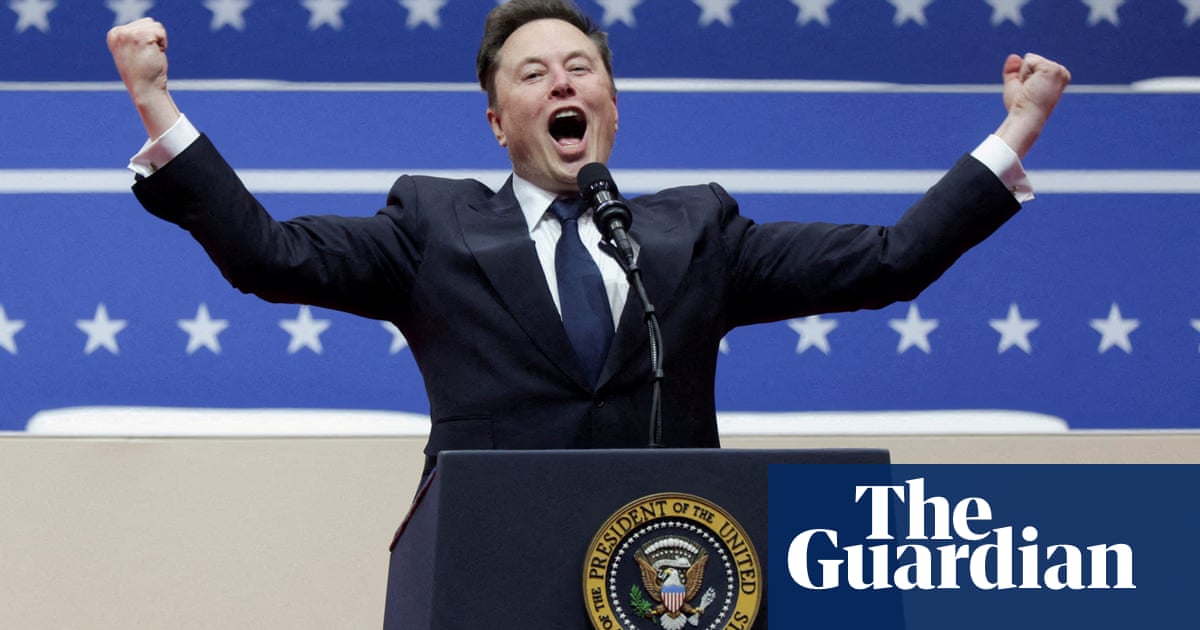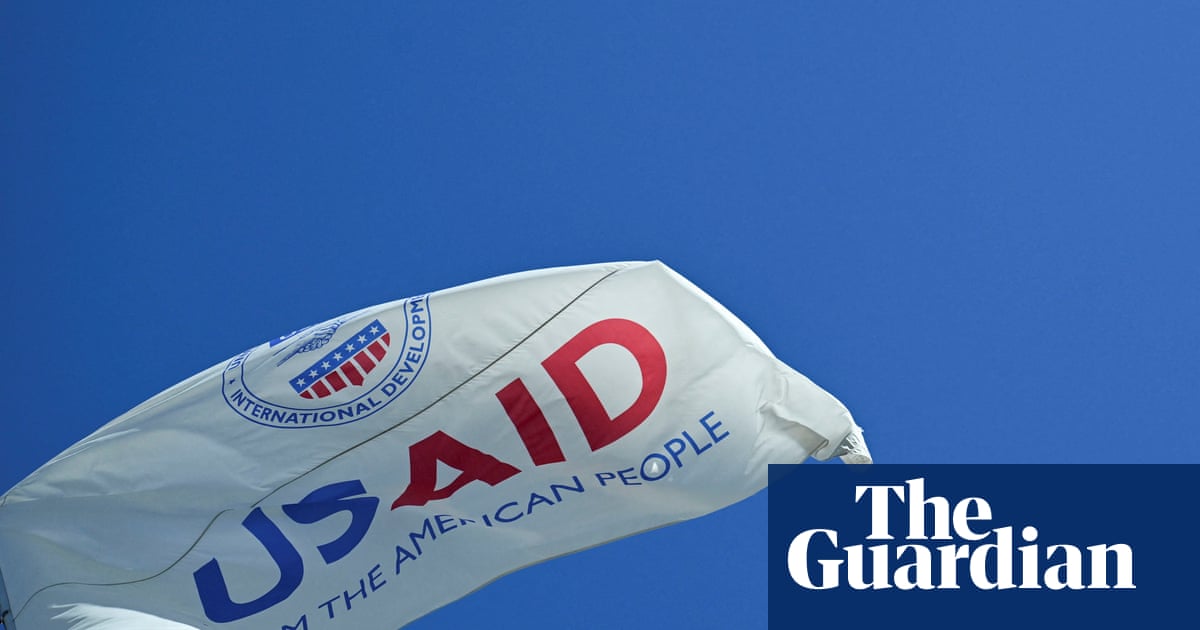US business leaders are offering a mixed reaction to steep trade tariffs that Donald Trump’s administration has imposed on Canada, Mexico and China, as the editorial board of the Wall Street Journal called it “the dumbest trade war in history”.
Donald Trump hit Canada and Mexico with a 25% tariff on imports, and China with 10%, on Saturday in a move that launched a new era of trade wars between the US and three of its largest trading partners. The tariffs against Canada exclude oil and energy products.
Trump said on his own Truth Social social media platform that he had used emergency powers to issue the tariffs, due to come into effect on Tuesday, “because of the major threat of illegal aliens and deadly drugs killing our Citizens, including fentanyl”.
The Journal said the moves “reminds us of the old Bernard Lewis joke that it’s risky to be America’s enemy but it can be fatal to be its friend”, adding that with the exception of China “Mr Trump’s justification for this economic assault on the neighbors makes no sense.”
It added: “Drugs may be an excuse since Mr Trump has made clear he likes tariffs for their own sake, pointing to Trump’s comments on Thursday that the US doesn’t need oil or lumber from its neighbors.
“Mr Trump sometimes sounds as if the US shouldn’t import anything at all, that America can be a perfectly closed economy making everything at home,” the editorial continued. “This is called autarky, and it isn’t the world we live in, or one that we should want to live in, as Mr Trump may soon find out.”
Trump reacted strongly to the outlet’s editorial position, posting on Truth Social that “a “Tariff Lobby”, headed by the Globalist, and always wrong, Wall Street Journal, is working hard to justify Countries like Canada, Mexico, China, and too many others to name, continue the decades long RIPOFF OF AMERICA, both with regard to TRADE, CRIME, AND POISONOUS DRUGS that are allowed to so freely flow into AMERICA.”
“THOSE DAYS ARE OVER!”, Trump continues in the screed. “The USA has major deficits with Canada, Mexico, and China (and almost all countries!), owes 36 Trillion Dollars, and we’re not going to be the “Stupid Country” any longer.”
Mexican president Claudia Sheinbaum ordered retaliatory tariffs in response to the US decision to slap tariffs on all goods coming from Mexico, saying her government sought dialogue rather than confrontation with its trade partner to the north.
Sheinbaum pointed to her government’s action against fentanyl production in Mexico since she took office in October, saying it had seized 20m doses of the synthetic opioid and detained 10,000 individuals tied to drug trafficking.
Mexico has ordered retaliatory tariffs and Canada’s prime minister said the country would put matching 25% tariffs on up to $155bn in US imports. China’s Ministry of Commerce said it would file a lawsuit with the World Trade Organization for the “wrongful practices of the US”.
But some US business leaders have reacted neutrally to Trump’s tariffs that the Budget Lab at Yale University estimates would cost the average American household $1,000 to $1,200 in annual purchasing power.
Gregory Daco, chief economist at the tax and consulting firm EY, calculates the tariffs would increase inflation, currently running at 2.9%, by 0.4% and cut US GDP by 1.5% this year.
Jamie Dimon, CEO of JP Morgan, the world’s largest bank, said at the World Economic Forum in Davos, Switzerland, last week that tariff threats can be used effectively to “bring people to the table” to negotiate more favorable trade terms.
Tariffs are “an economic tool” or “an economic weapon”, depending on how they’re used, Dimon remarked to CNBC. “I would put in perspective: If it’s a little inflationary, but it’s good for national security, so be it. I mean, get over it.”
William Reinsch, a former US trade official now at the Center for Strategic and International Studies, said many companies had stocked up on imported goods ahead of time to avoid the tariffs and would be able to draw on existing inventories.
That may be an effective strategy for non-perishable goods, like construction materials, but less so for perishable goods that are not afforded the ability to stockpile. “You don’t stockpile avocados,’’ Reinsch said. “You don’t stockpile cut flowers. You don’t stockpile bananas.’’
The US Chamber of Commerce business group warned that the tariff policy was wrong-headed and would cause economic harm to Americans.
The group’s senior vice-president John Murphy said: “The President is right to focus on major problems like our broken border and the scourge of fentanyl, but the imposition of tariffs under IEEPA is unprecedented, won’t solve these problems, and will only raise prices for American families and upend supply chains.”
He added: “The Chamber will consult with our members, including main street businesses across the country impacted by this move, to determine next steps to prevent economic harm to Americans.”

 German (DE)
German (DE)  English (US)
English (US)  Spanish (ES)
Spanish (ES)  French (FR)
French (FR)  Hindi (IN)
Hindi (IN)  Italian (IT)
Italian (IT)  Russian (RU)
Russian (RU)  2 hours ago
2 hours ago
























Comments